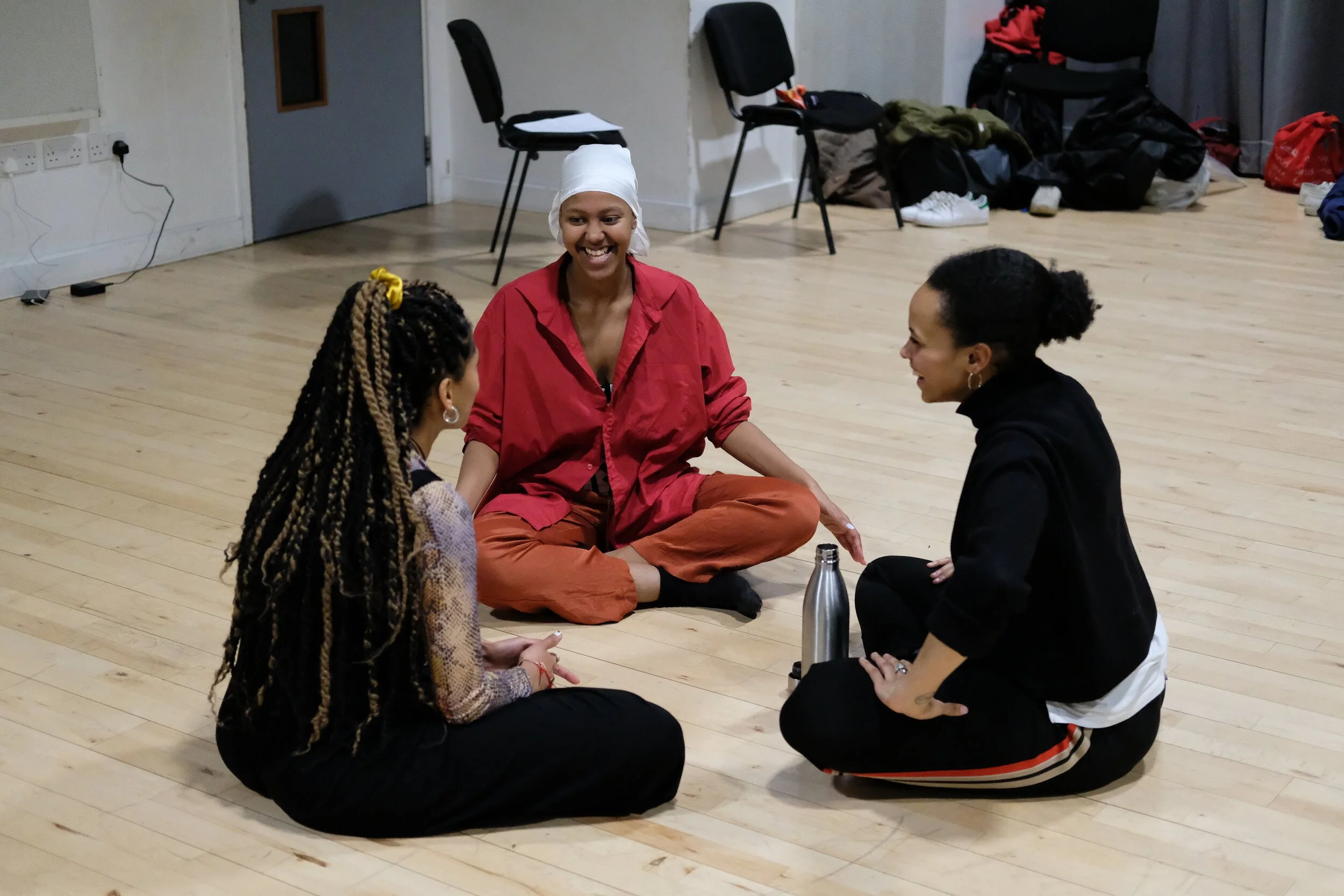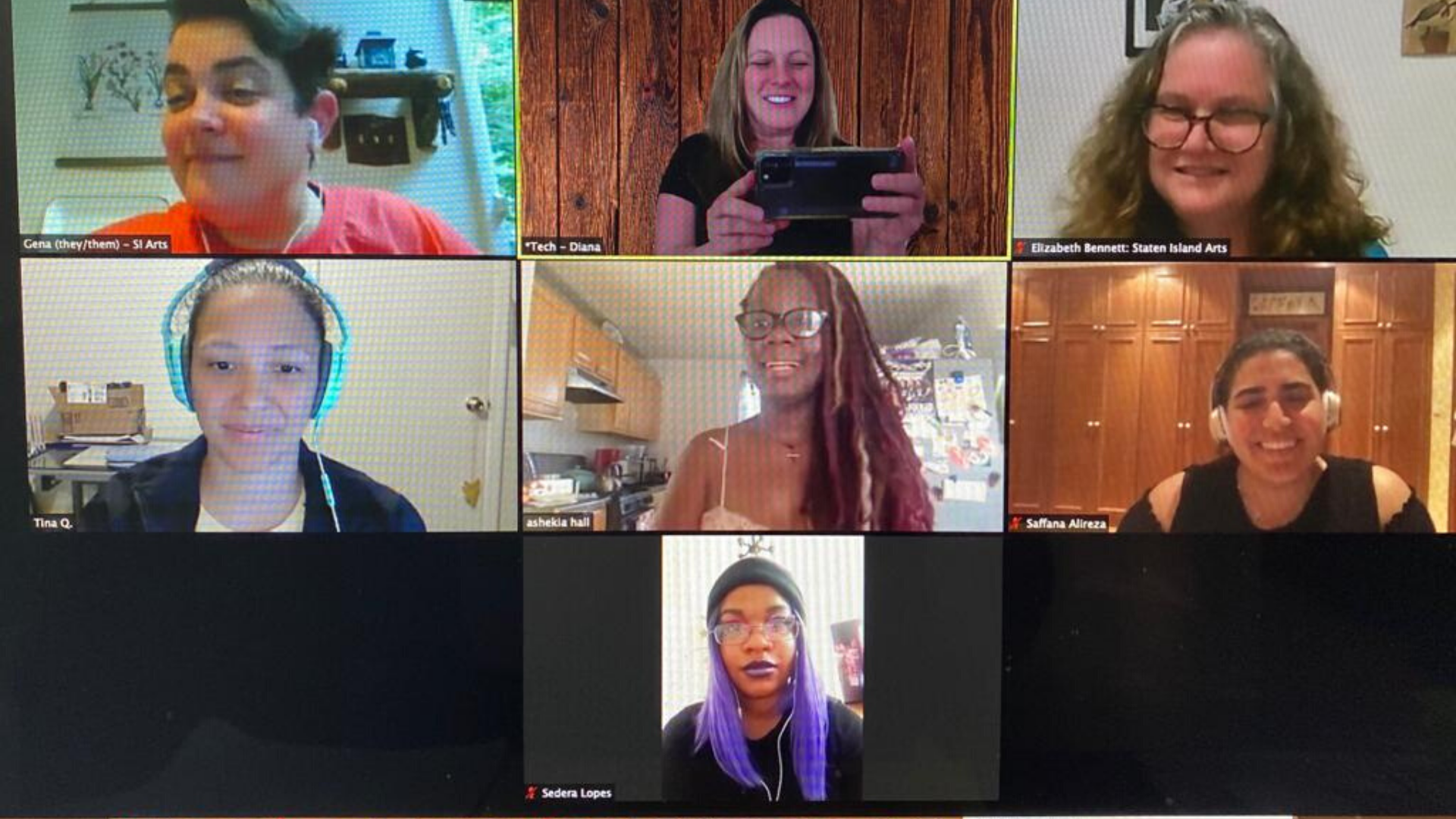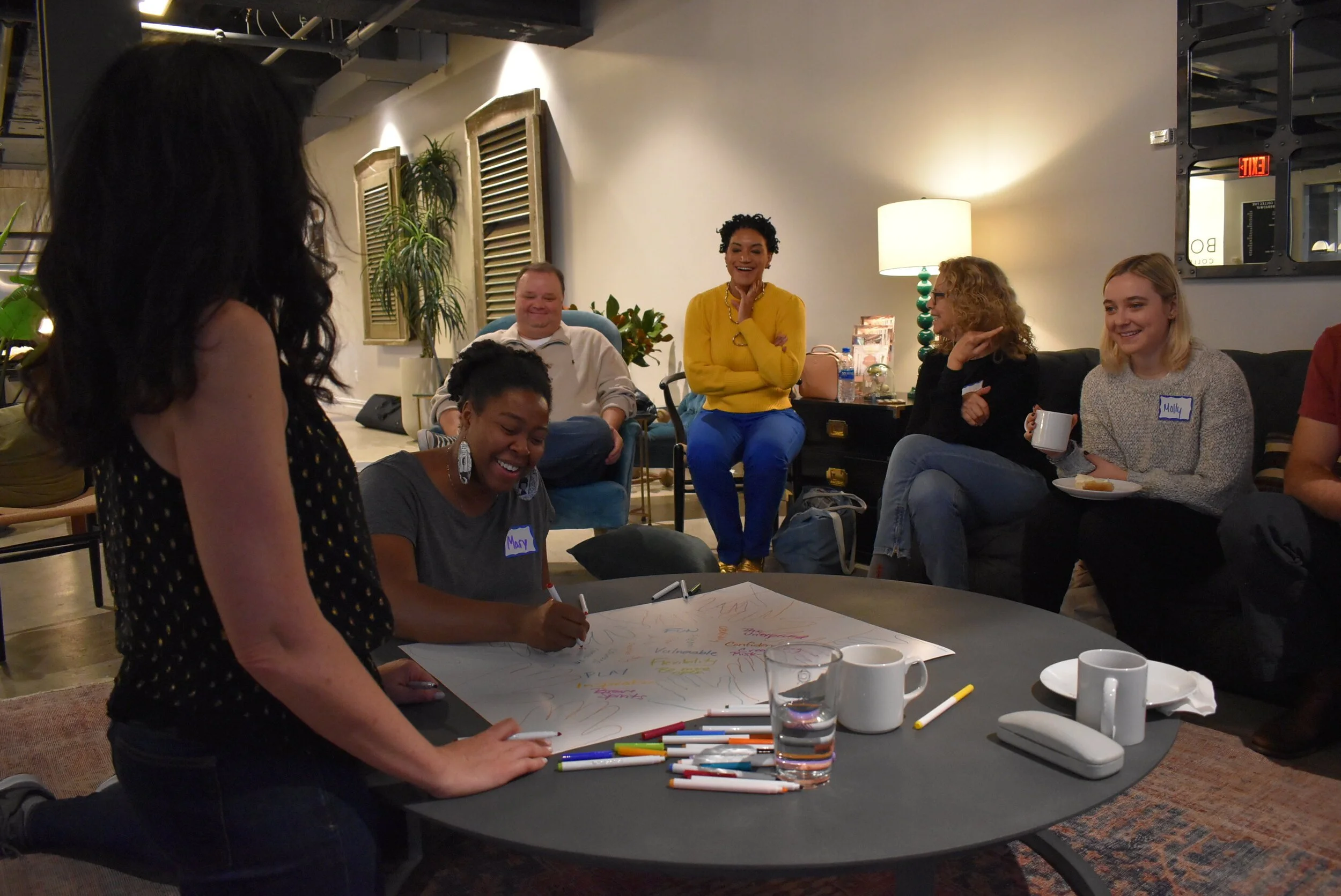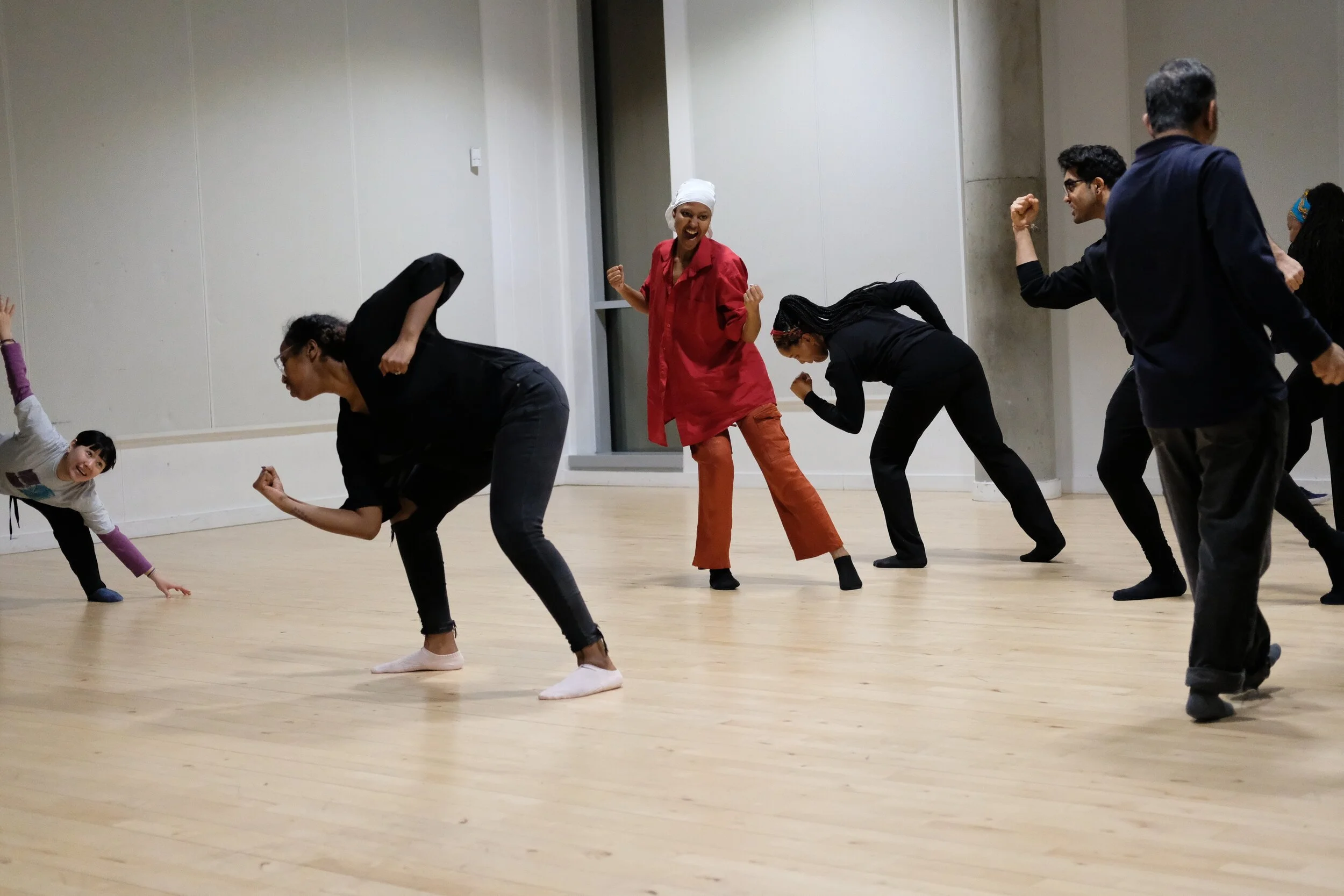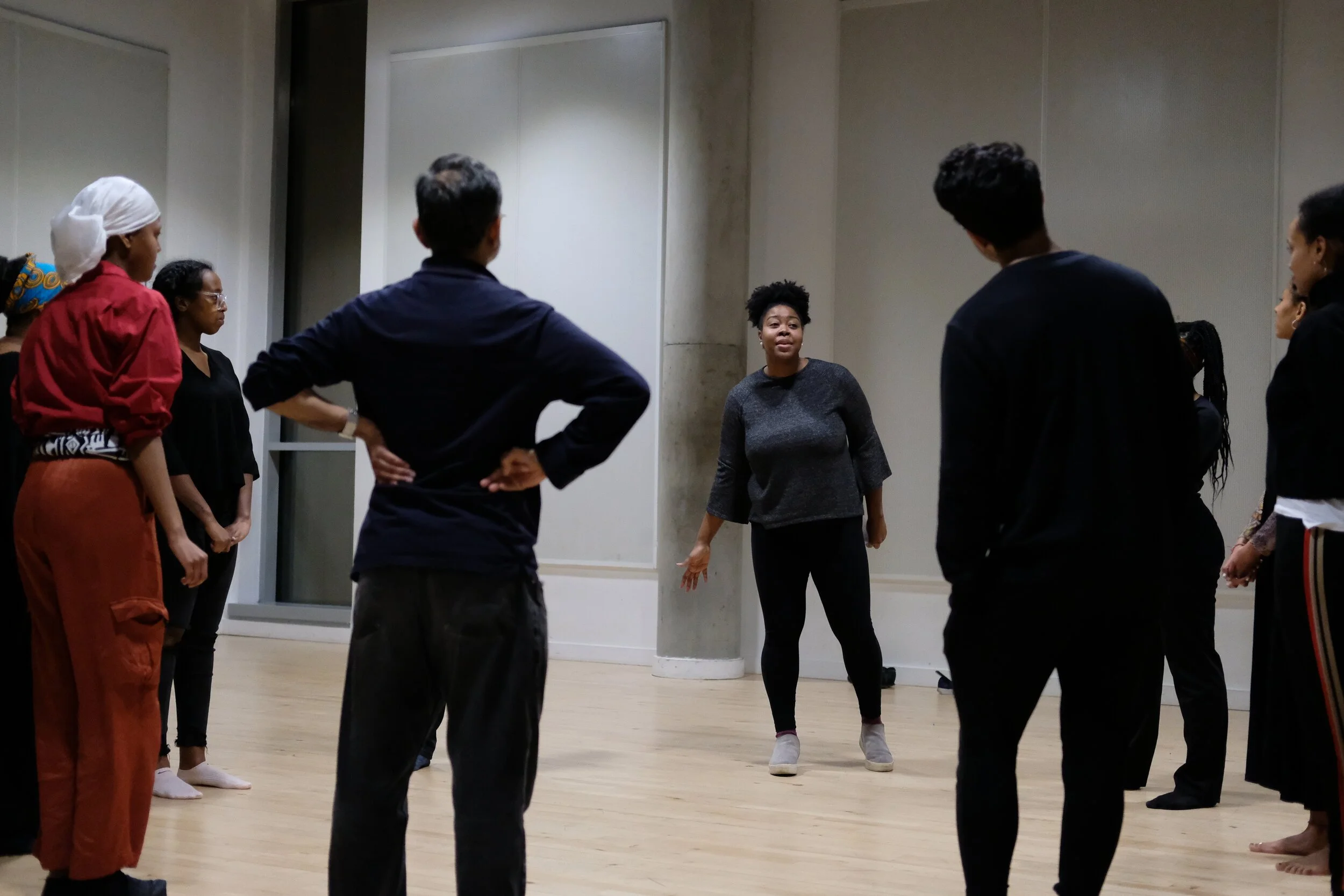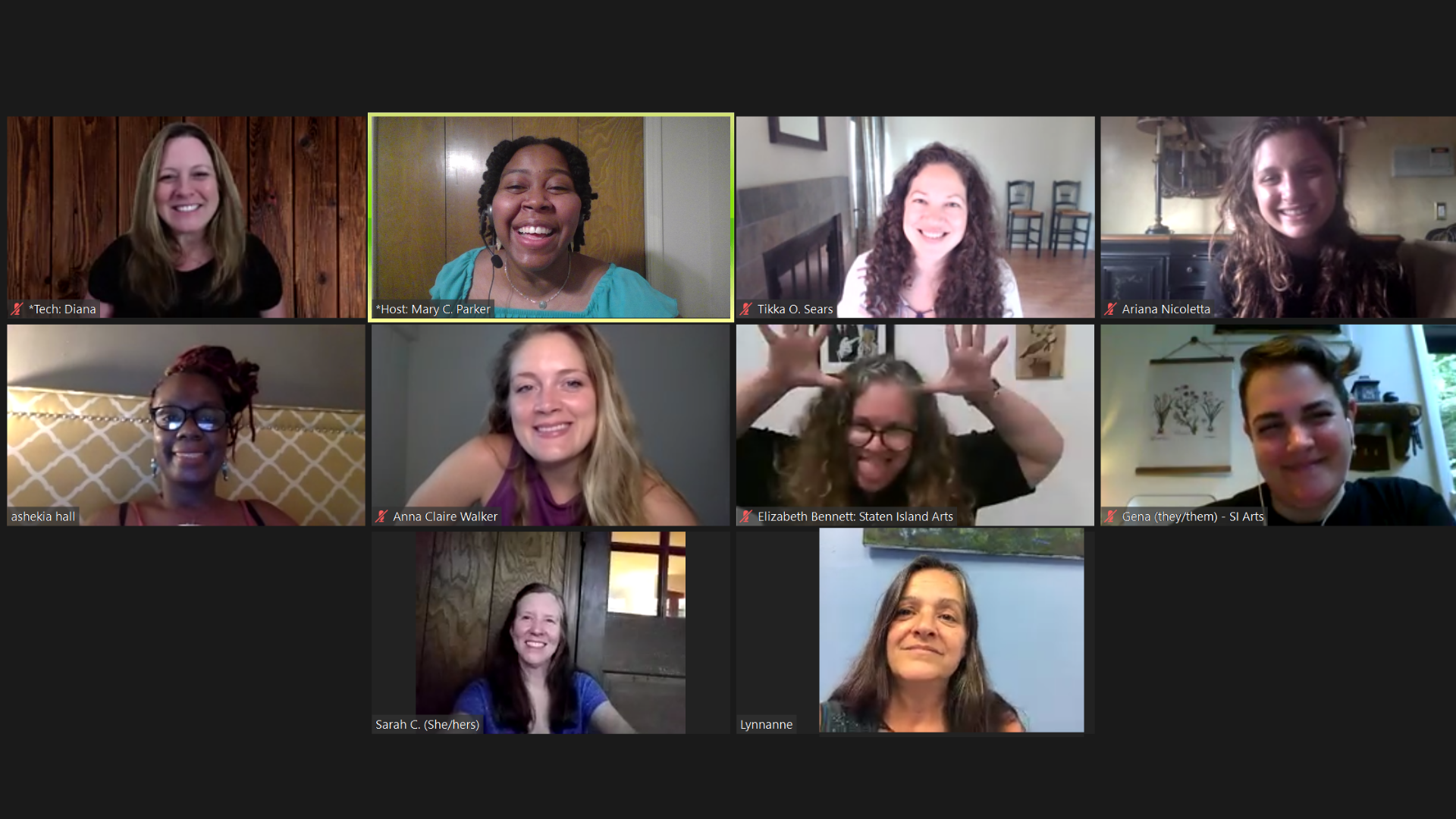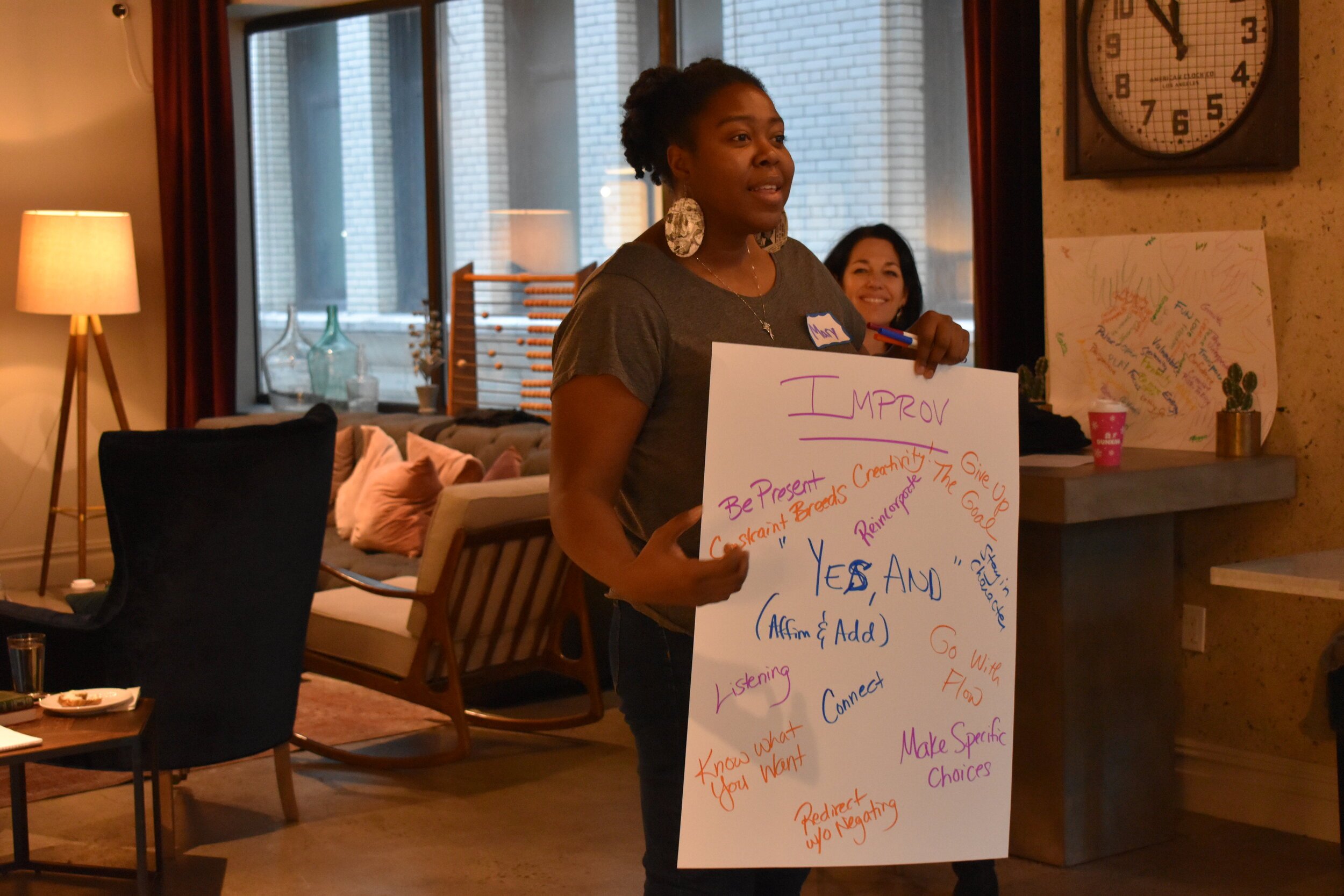“Applied theatre is taking theatre concepts and tools offstage with non-actors providing creative ways for folx to solve social problems.”
— Mary C. Parker
Mary’s praxis of applied theatre is built on concepts from applied improvisation, playback theatre, and theatre of the oppressed (TO). Through a methodology rooted in play, these praxes provide environments to explore uncomfortable topics in a fun and humorous way. Utilizing play offers an experiential learning space to increase awareness and explore practical ways to respond to situations with an anti-oppression lens and critical race theory framework.
As an applied theatre practitioner, Mary has trained with Julian Boal, Theatre of the Oppressed (TO) NYC, Pittsburgh Theatre of the Oppressed, London Playback Theatre, Mandala Center for Change, and Pittsburgh Playback. She has led TO workshops, taught forum theatre and playback theatre in drama conservatories, and volunteered with Cardboard Citizens in London, UK. Mary has facilitated online and in-person experiential, interactive workshops for students, education administrators, and communities in Potsdam, London, Kuala Lumpur, Pittsburgh, Zimbabwe, Atlanta, and Seattle.
Testimonials
Elizabeth Bennett, Executive Director, Staten Island Arts
“In an era where many Staten Islanders felt talked-at or Zoom’d out, Mary C. Parker’s workshops gave our community members opportunities for digital interaction in ways that they never knew were possible. The workshops encouraged creative engagement, thinking, and working outside the silos it’s so easy to operate within, and even silliness and play. We’re grateful to Mary for refreshing our local artists and providing us with tools we’re using to build new ways of engaging.”
Margaret Chase, Theatre Professional

